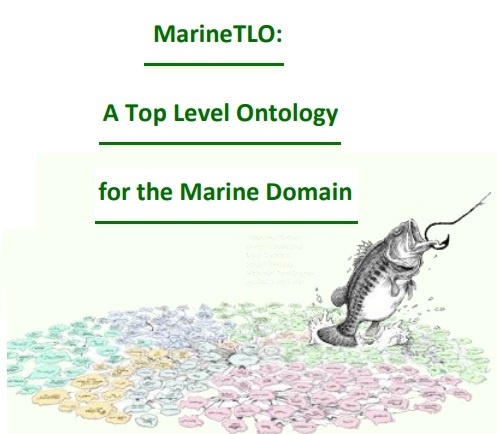MarineTLO - a top-level Ontology for the marine domain


One of the main characteristics of biodiversity data is its cross-disciplinary feature and the extremely broad range of data types, structures, and semantic concepts which encompasses. The Information Systems Laboratory (ISL) of FORTH-ICS in the context of the iMarine project has designed and implemented a top level ontology, called Marine Top Level Ontology (for short MarineTLO), also applicable to the terrestrial domain.
___________________________________________________________________________________________________
Biodiversity data, especially in the marine domain, is widely distributed, with few well established repositories or standard protocols for their archiving, access, and retrieval.
Queries like “Given the scientific name of a species, find its predators with the related taxon-rank classification and with the different codes that the organizations use to refer to them", cannot be formulated (and consequently nor answered) by any individual source.
To formulate such queries we need an expressive conceptual model, while for answering them we also have to assemble pieces of information stored in different sources.
To fill this gap, ISL has designed and implemented a top level ontology, called MarineTLO.
# Target Domains
MarineTLO can be used for integrating information from the marine domain. Just indicatively some scenarios are:
(a) for publishing Linked Data,
(b) for supporting mash-up applications and semantic post-processing of search results and
(c) for enabling complex query services over integrated marine data.
BlueBRIDGE webinar: Semantic Integration of Marine Data. Click here to access the material (or view it on Slideshare) |
# MarineTLO : Description
MarineTLO is a top level ontology, generic enough to provide consistent abstractions or specifications of concepts included in all data models or ontologies of marine data sources and provide the necessary properties to make this distributed knowledge base a coherent source of facts relating observational data with the respective spatiotemporal context and categorical (systematic) domain knowledge.
It can be used as the core schema for publishing Linked Data, as well as for setting up integration systems for the marine domain. It can be extended to any level of detail on demand, while preserving monotonicity.
For its development and evolution an iterative and incremental methodology (where a new version is released every two months) has been adopted.
For the implementation OWL 2 has been used, and to evaluate it a set of competency queries have been used, formulating the domain requirements provided by the related communities.
The current version of MarineTLO contains 91 classes and 51 properties and it is organized in two abstraction levels: model (schema) and metamodel (metaschema).

The metamodel aims at providing a method for classifying the schema level in meaningful abstractions, which can be exploited not only for expressing cross-categorical knowledge but also for aiding the formulation of generic queries. Another form of connecting the classes between the model and the metamodel is expressed using the instanceOf relationship.
MarineTLO is the conceptual backbone of the MarineTLO-based warehouse, a warehouse that integrates information coming from FishBase, WoRMS, ECOSCOPE, FLOD and DBpedia. It currently contains information (≈ 3M triples) about marine species (≈ 40,000), ecosystems, water areas, vessels, etc. The warehouse is already in use by various services offered by iMarine.
More information about MarineTLO (documentation, evolution process, releases) can be found at: http://www.ics.forth.gr/isl/MarineTLO/
Contact details: Yannis Tzitzikas and Chryssoula Bekiari E-mail: [email protected]; www.ics.forth.gr/isl
___________________________________________________________________________________________________
Related:

